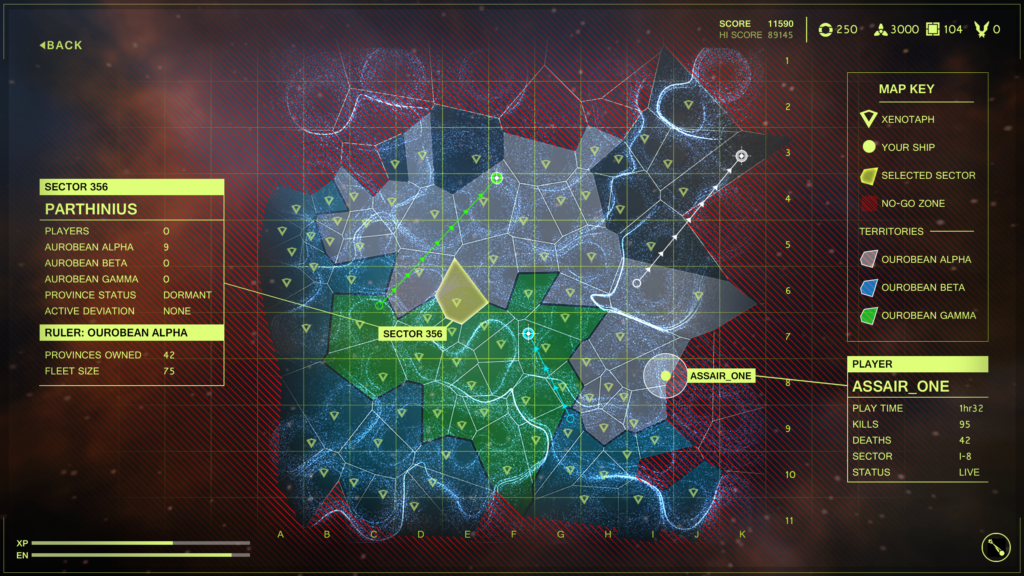
Improbable Joins Forces with Google to Empower Developers to Build New Online Gaming Experiences With Strategic Partnership & Open Game Developer Alpha
SpatialOS, a platform from UK startup Improbable is available now for game developers to create massive, densely detailed and persistent game worlds running on Google Cloud Platform.
Improbable, the London-based startup which enables developers to build virtual worlds offering permanent, persistent and engaging gaming experiences, today announced a joint game developer program, the SpatialOS Games Innovation Program, with Google Cloud Platform.
With this new program, Google and Improbable will partner to subsidise access for qualified developers to Improbable’s SpatialOS platform, a distributed operating system, powered by Google Cloud Platform, which enables the development of persistent online game worlds.
Alongside this announcement, Improbable has launched its Game Developer Open Alpha for SpatialOS. Any game developer can get access to the SpatialOS platform and development tools, to test and experiment with it ahead of the full launch of the Games Innovation Program and the beta of SpatialOS in Q1 2017.
SpatialOS gives any developer the ability to define and build simulated worlds which can accommodate thousands of simultaneous players in a single world at the same time, exceeding the usual limits of what a conventional game server can do. These simulations are persistent and support the kind of complex computation needed to bring new game ideas to life, while enabling a development methodology that supports extremely rapid iteration.
“We set out to build SpatialOS because we saw what developers wanted to do, but were held back from achieving,” said Herman Narula, CEO and co-founder of Improbable.“Since we founded Improbable, we have talked to many developers who have amazing ideas for new kinds of games they can’t currently realise. Like them, we want to create and inhabit realistic worlds where players’ actions have real consequences – but technical limitations have stifled innovation in gaming.”
Whether deployed on a single PC, a dedicated server or even the open cloud, games are currently hampered by low player numbers per instance, small environments and limited interaction with the world.
Creating and running massive simulations that solve those problems on a public cloud requires a kind of distributed supercomputing – with potentially thousands of cores working together. This is what SpatialOS makes possible, by distributing work automatically and intelligently across hundreds or thousands of servers.
The other great challenge to game design is creative. Building games at this scale requires a whole new approach to game design.
“Imagine a virtual city populated by players, who can make lasting changes to its social structure or its economy through their actions,” said Narula. “Or a battle between thousands of players, played out in real time over days or weeks. These are possibilities that demand a totally different approach.”
“We’re particularly excited that both the partnership program and our open alpha will make it easier for small core teams, regardless of studio size, to create new game ideas involving worlds built on this scale. So much innovation in games comes from small core teams, so one of our priorities is enabling teams to build a product they could immediately deploy, scale and grow, with players involved from the early stages. These teams can use SpatialOS, backed by the power and stability of GCP, to iterate an ideas rapidly and test them early.”
- Lazarus uses Improbable’s SpatialOS technology
- Lazarus in-game map
- Metaworld uses Improbable’s SpatialOS technology
SpatialOS lets developers rapidly deploy and test these new game ideas and begin live testing with users from a much earlier stage, enabling them to gather feedback much faster than before. The Games Innovation Program also helps ensure that developers don’t have to worry about some of the costs of game development. These new kinds of games are also likely to benefit significantly from advances in machine learning, artificial intelligence and virtual reality interfaces – all technologies where Google is a leader.
Under the program, eligible game developers will be provided with Improbable Credits, which can be used to pay SpatialOS usage fees, which include the costs of hosting games on GCP.The program will cover the cloud costs of developing, testing and deploying games using SpatialOS right up to when the game is launched.
“The future of gaming lies in the cloud,” said Google Global Head of Technology Partnerships Nan Boden. “This partnership is an opportunity for us to help developers to take full advantage of the new possibilities enabled by SpatialOS combined with the unique abilities of Google Cloud Platform. This is the first step in Google’s partnership with Improbable, and just the beginning of our work together to support game development and beyond.”
About Improbable
Headquartered in London, Improbable is a technology company dedicated to building technology to enable powerful virtual worlds and simulations designed to help solve previously intractable problems. In gaming and entertainment, this enables the creation of richer, more immersive and persistent virtual worlds. The Company’s proprietary platform SpatialOS is now available as an alpha release for games development teams of all sizes. Founded in 2012, Improbable received $20m in Series A funding from Andreessen Horowitz in March 2015.
Gaming and entertainment studios currently building their products on SpatialOS include Bossa Studios (Worlds Adrift), Spilt Milk Studios (Lazarus), HelloVR (MetaWorld), Entrada Interactive (Rebel Horizons) and Soulbound Studios (Chronicles of Elyria).








